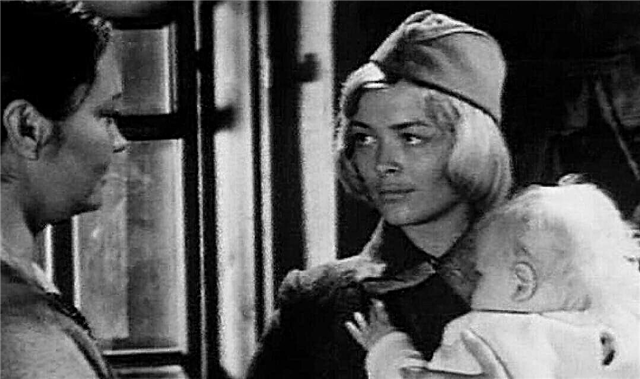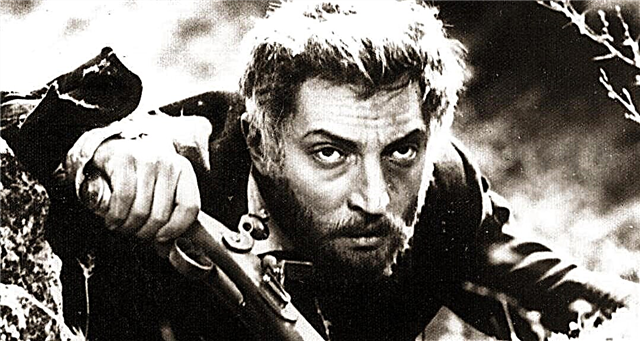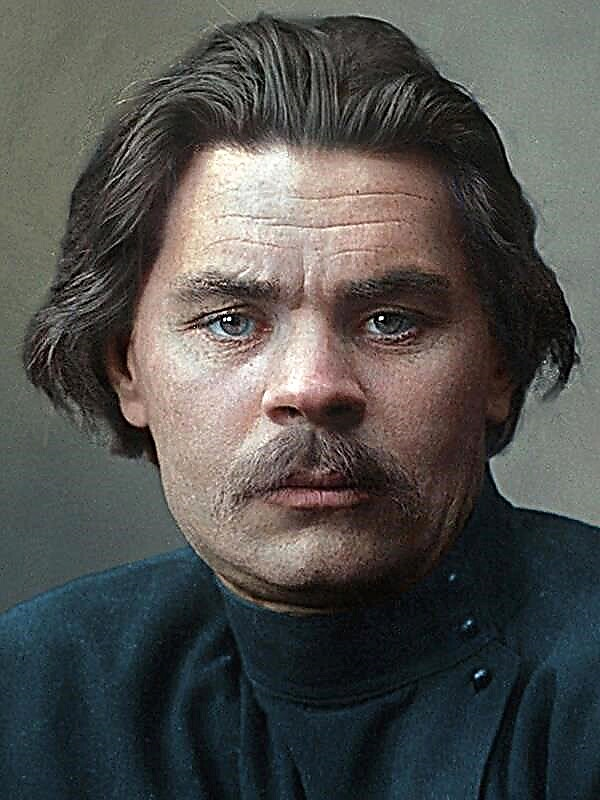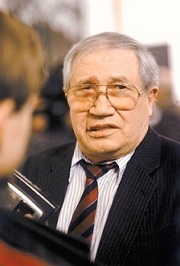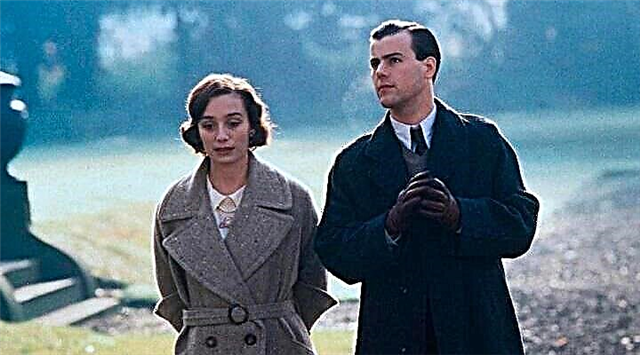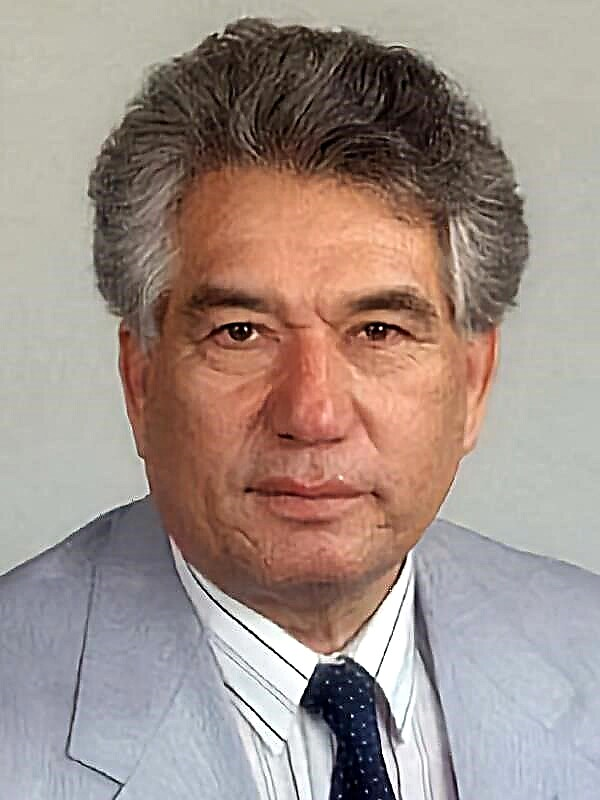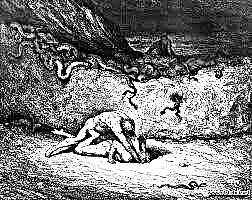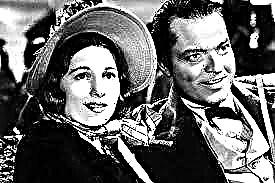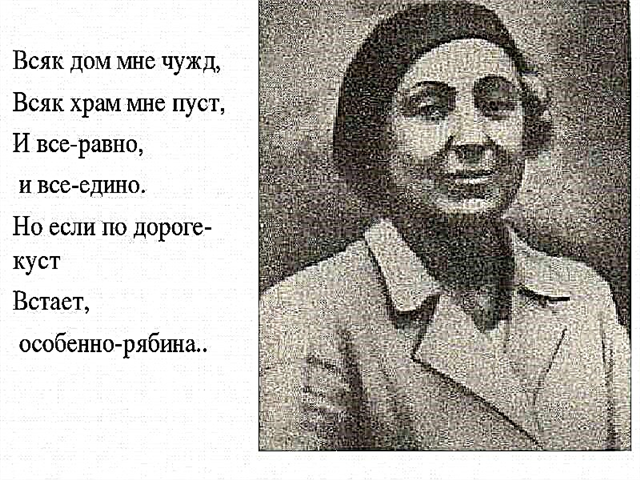I
Sergei Petrovich was a third-year student at the Faculty of Natural Sciences. He came from Smolensk, where his parents and numerous brothers and sisters still lived. The elder brother of Sergei Petrovich was a doctor, earned good money, but could not help, since he managed to get a family. Therefore, Sergey Petrovich existed on a scholarship from a Moscow student.
For some time, Sergey Petrovich rented a room with a student Novikov. He drank a lot at that time, but Novikov paid for all expenses, a very intelligent, language-capable young man who gave expensive lessons. In a drunken state, he was capable of madness, and Sergey Petrovich followed him in everything.
Novikov helped Sergei Petrovich translate from German Nietzsche's work “So Said Zarathustra,” in which he was struck by the idea of the superman and the philosopher’s thoughts “about strong, free and courageous in spirit”. Sergei Petrovich did not have time to translate the work to the end - Novikov was sent from Moscow for scandals.
In addition to the lack of money, there were other facts that Sergei Petrovich had to put up with. Sometimes he thought that his very life was a fact from the same category. Unlike Novikov with his expressive face, Sergey Petrovich was ugly, which made him indistinguishable from thousands of other ugly people. Even tall growth could not fix this, so Sergey Petrovich was hunched over when walking.
But the hardest thing for Sergei Petrovich was to realize that he was stupid. In the lower grades of the gymnasium, he was considered stupid, and the priest called him "the idiot Smolensk and Mogilev." He was so devoid of personality that he was left without a nickname - everyone called him only Sergei Petrovich.
University comrades considered Sergei Petrovich limited and never talked with him about serious topics.
Then he was convinced of his limitations and so convinced that if the whole world recognized him as a genius, he would not have believed him.
All the clever thoughts in Sergey Petrovich’s head were acquired — each corresponded to the page of the book from which he read it. Their thoughts were simple and no different from the thousands of thoughts of other stupid people.
No matter how difficult it was for Sergey Petrovich, he put up with it and became a dreamer. But even his dreams were naive and shallow. He dreamed of becoming rich or famous, but to imagine everything in detail, he lacked imagination. When dreams began to take on features of reality, it became even more difficult for Sergey Petrovich to put up with “the harsh fact - life”.
Sergei Petrovich attended student meetings, went on a visit and traveled "to women." He knew only these women, but Sergey Petrovich didn’t even try to get to know others who were clean and good, because he was sure that “not one would love him.”
In fact, he had absolutely no living connection with people, which made their society pleasant and necessary.
So imperceptibly there was a breakdown of Sergei Petrovich "with the world of living people."
Sergei Petrovich did not read any serious books or novels. He recognized only two books: “80,000 miles under water” by J. Verne, in which he was attracted to “the mighty and spontaneously free personality of Captain Nemo”; and Spilgagen's “One Warrior in the Field,” whose hero was a noble despot. Under the influence of Novikov, Sergei Petrovich began to read biographies of great people, but the more he learned about them, "the less he became."
So Sergey Petrovich lived to the age of 23. Gradually, he began to get used to his routine and notice that there are people who are dumber and more ordinary than him. He "began to read less and drink more vodka."In the summer in Smolensk, Sergei Petrovich began his first romance with an ugly, but kind girl, who came to weed the garden.
But there were moments when he just woke up from a deep sleep and with horror realized that he was still the same small, insignificant man; then he dreamed about suicide all night long.
At the time of complete reconciliation with life, Sergei Petrovich made friends with Novikov, who was considered the most intelligent among students. Everyone thought that he had made a stupid friend out of vanity, and no one believed his words that his friend was not as stupid as he seemed.
Sergei Petrovich was proud of Novikov, bowed to his quick mind and imitated him. Once he noticed that he was increasingly lagging behind Novikov. Nietzsche helped Sergei Petrovich understand how "he is mentally far from his friend."
II
Nietzsche, like a "midnight, sad sun," illuminated the "cold, deadly sad desert" of the soul and life of Sergei Petrovich. But he still rejoiced in the light of the thoughts of the great philosopher.
And as a fiery believing young priest, to whom the long-awaited deity descended, he hid it from prying eyes and was in pain when rude and impudent hands touched the deity.
Sergei Petrovich did not like it when Novikov "laughed at the foggy language of the book." He felt that he understood the words of Zarathustra more deeply, but could not express his thoughts.
The dull humility with the facts ended imperceptibly for Sergei Petrovich, as if a "vision of a superman" had lit a wick attached to a barrel of gunpowder. This bright but blurred vision illuminated the life of Sergei Petrovich, like a long gray corridor without turns and doors, through which gray shadows of people float.
Sergei Petrovich constantly compared himself to Novikov, and he seemed to him "alien and mysterious." He was not too upset when Novikov was expelled from Moscow. He did not promise to write — he did not like correspondence — and regretted that he had let Nietzsche read Sergei Petrovich.
Left alone, Sergey Petrovich realized that he had long wanted to stay alone with Nietzsche. From this moment, no one bothered them.
III
Sergey Petrovich abandoned his studies and stopped talking with friends. Never before had “his head worked so long and hard”, but “a bloodless brain did not obey him” and instead of truth gave out ready-made formulations.
Exhausted, tired, he looked like a workhorse, which lifts a heavy cart on a mountain, and suffocates and falls to its knees until it again drives its burning whip.
This whip was for him a vision of a superman, wielding strength, happiness and freedom.
Sergei Petrovich looked at himself from the side and saw a man for whom “everything that makes life happy or bitter, but deep, human” is closed. Religion was replaced by the habit of ritualism and superstition. He did not deny God, but he did not believe in him. He did not like people, but he did not know how to hate them either.
Sergei Petrovich read about the terrible killers, he saw completely descending people, he heard stories about exploits in the name of an idea, and every time he thought: “But I could not.” The words of Zarathustra sounded in his ears: “If life fails you, if a poisonous worm devours your heart, know that death will succeed.”
The books inspired Sergey Petrovich with a strong and fruitless desire to be kind, which tormented him like a blind man - a thirst for light. In his future there was no place for good - what good can an excise official bring, which he was going to become by following in his father's footsteps. Sergei Petrovich imagined his long, honest and impoverished life, after which there would remain a dozen children similar to him, and the newspaper would write that he was a good worker.
Finally, Sergei Petrovich realized that he was useful only as a raw material and an object. He buys things, food and thereby creates jobs and moves forward progress. His miserable life can be explored by a scientist or writer and create on its basis, as on a foundation, his own masterpiece. Such utility did not at all satisfy Sergei Petrovich, since he was "outside his will."
And his whole soul was seized by shame and deaf anger of a man who had not understood for a long time that they were laughing at him, and, turning around, saw his bared teeth and outstretched fingers.
His “I”, independent of the weak brain, was indignant, Sergey Petrovich said to himself: “I myself want to be happy, strong and free, and I have the right to do so” and rebelled against his depersonalizing nature. He wrote a long and chaotic letter to Novikov, but he did not answer him.
Sergei Petrovich wondered if he could become happy under the given conditions, and made a conclusion that made him "rebel against the people."
IV
Having stopped studying, Sergey Petrovich wandered around the city most of the day. It was easier to think and summarize the sad results of my life on the go.
Everything he saw told him that it would be possible for him to have relative happiness, but that at the same time he would never receive it, never.
At one time he was sure that he would become happy, having become rich. But Sergei Petrovich did not like to work, the work available to him — studies or the position of an excise official — did not bring him joy and satisfaction. He loved simple physical labor on earth, loved to wander and admire nature, but this was not available to him because of his origin and education, and he lacked strength and courage to break the boundaries and become a farmer.
Sergei Petrovich wanted to enjoy the music, art and love of a purebred beautiful woman. He began to dream about money, but soon realized that the work available to him would not bring wealth, and legal ways to get rich quickly were not for him.
Sergei Petrovich realized that money only exacerbates the injustices of nature. Life seemed to him an iron cage with the only way out - death.
V
Sergei Petrovich firmly decided to die and believed "that his death will be a victory."
Death has become not desirable, which may not be, but inevitable, such that it will happen without fail. An exit was opened from the cage, and ‹...› it led into obscurity and darkness.
He believed that his "I" would survive and create for himself a "new brain and heart."
In recent days, he has become as pedantic and neat as before. He went to the bathhouse, fixed his uniform jacket and walked around all his former friends. Subsequently, they assured that they had already noticed his madness, and believed that only the woman's love could save him.
Sergei Petrovich decided to commit suicide on Friday, when most of the students went home. He wrote a thick letter to Novikov in which he announced his decision and prepared cyanide for himself.
Looking at a bottle of poison, Sergei Petrovich suddenly introduced his own funeral, the grave, a coffin, the process of decomposition and seemed to wake up. Horror and thirst for life swept over him. A maid came in and asked when to wake him, and Sergey Petrovich realized that he could refuse his decision and just go to bed. He fell asleep, overflowing with the joy of life.
It seemed to him that a saved life rejoices in all the smallest particles of his body, warmed by a blanket.
When he woke up in the morning, he did not understand why he was still alive and what had frightened him so much yesterday. He remembered his letter to Novikov and blushed with shame for his cowardice and bragging. He wrote Novikov the last letter, similar to the delirium of a patient with megalomania, and drank poison. The cyanide solution turned out to be poorly prepared, and Sergey Petrovich died only in the evening.
The telegram sent by the students was late, and the mother of Sergei Petrovich arrived after the funeral. From her son she left books, worn clothes and a recently wired jacket.

